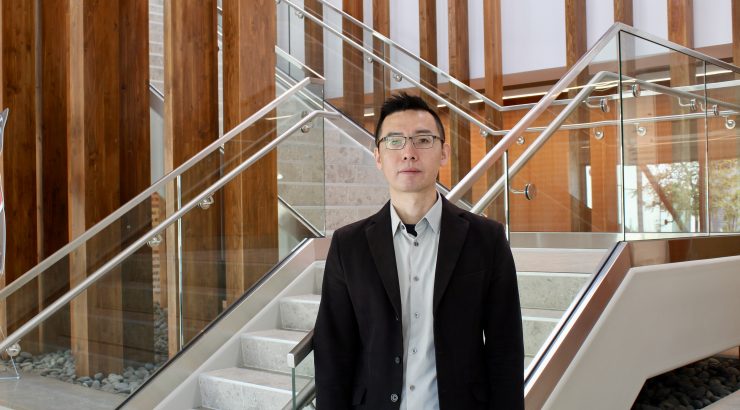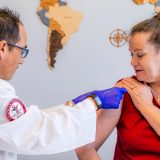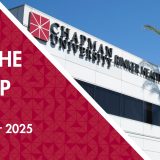NIH Awards Dr. Zhang $434K for Rare Genetic Disease Research
April 16, 2024
Dr. Miao Zhang has been awarded a prestigious grant totaling $434,024 by the National Institute of Neurological Disorders and Stroke (NINDS) of the National Institutes of Health (NIH). This funding will support Dr. Zhang’s groundbreaking project “Channelopathy of KCa2.3 and Zimmermann-Laband syndrome,” aimed at unraveling the complexities surrounding Zimmermann-Laband syndrome 3 (ZLS3).
Zimmermann-Laband syndrome 3 is a rare genetic disorder that displays distinctive physical and developmental traits, including gingival enlargement and intellectual disabilities. Recent research has shown a connection between ZLS3 and mutations in the KCa2.3 channels, leading to greater sensitivity to calcium ions within these channels. Dr. Zhang and his team, including collaborator Dr. Cui from Northeastern University, continue to explore the underlying mechanisms of this heightened sensitivity by categorizing mutations based on their locations and potential impacts on channel function.
“I’m very excited to start on this research alongside my collaborator, Dr. Cui at Northeastern University, on the ‘Channelopathy of KCa2.3 and Zimmermann-Laband syndrome’,” says Dr. Zhang. “The project was previously supported by an internal award from the Chapman University Office of Research during the 2020-2021 academic year, and so we’re pleased to see interest by the National Institutes of Health to continue our work.”
The study hopes to discover treatments that can counteract the dysfunctional KCa2.3 channels and potentially alleviate symptoms associated with ZLS3. Researchers also hope to pave the way for innovative therapeutic interventions tailored to the unique molecular signatures of ZLS3.
In addition, this project will explore the potential of existing drugs and compounds to inhibit the mutant KCa2.3 channels. Leveraging FDA-approved medications and compounds currently in clinical trials, the team will assess existing drugs and their ability to modulate the channel activity observed in ZLS3. This approach would allow for repurposing or identifying novel compounds, which would further advance the scientific understanding and therapeutic interventions for this genetic condition.
The “Channelopathy of KCa2.3 and Zimmermann-Laband syndrome,” can be found under Award Number R15NS130420.


